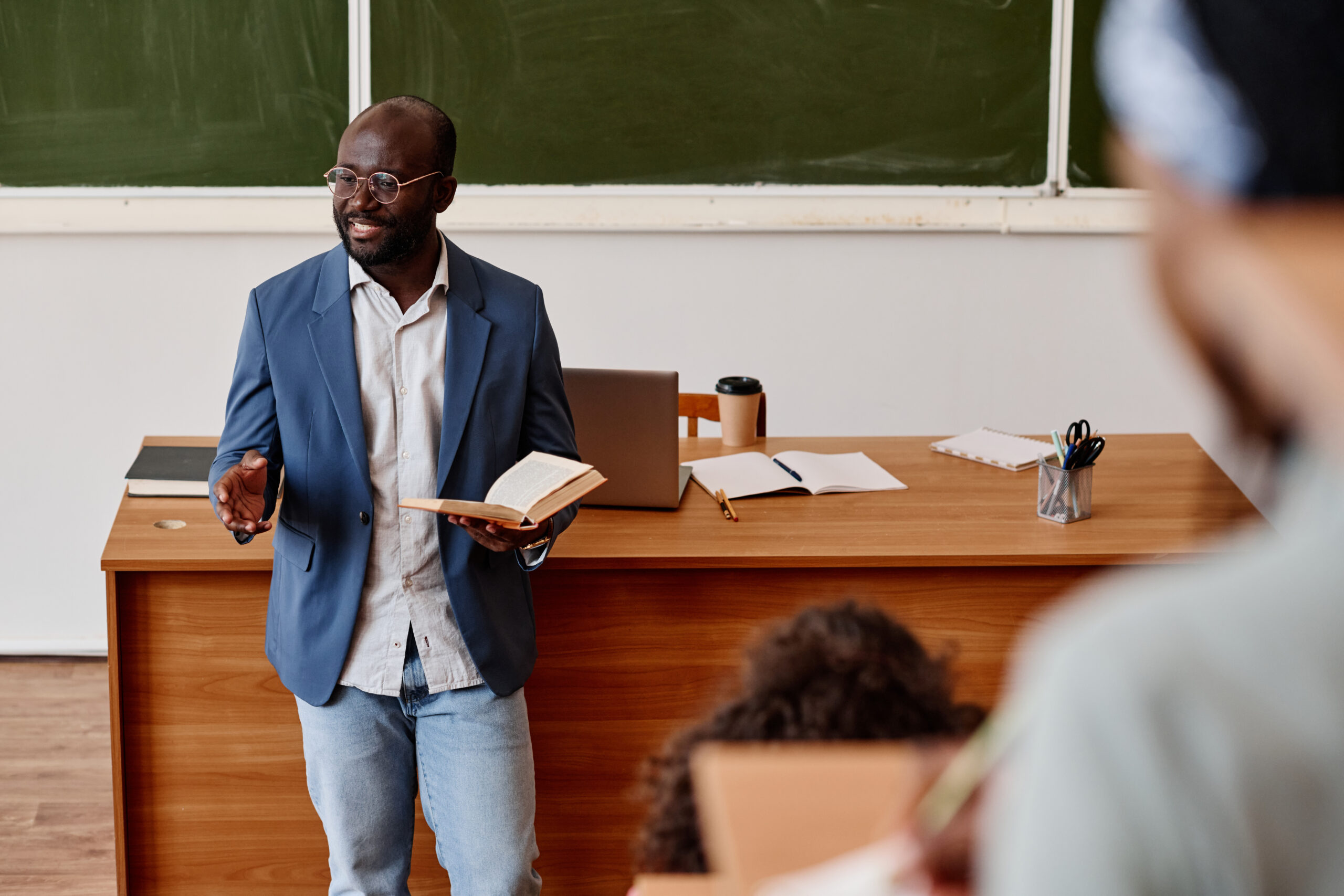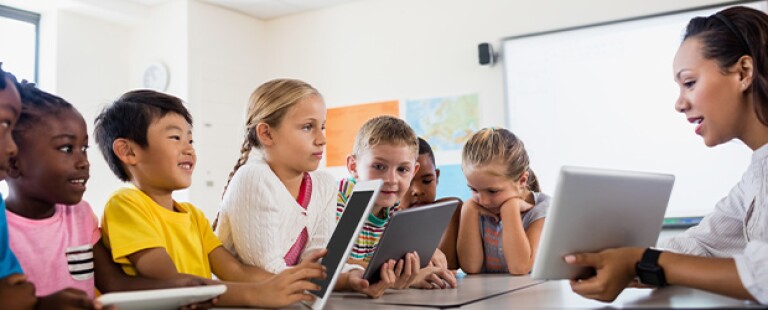Master Primary Science Concepts with Quality Tuition in Singapore
Master Primary Science Concepts with Quality Tuition in Singapore
Blog Article
Discover the Essential Advantages of Recognizing Primary Science for Young Learners
The relevance of primary science education and learning for young learners prolongs much past mere understanding procurement; it works as an essential column in creating important abilities such as vital reasoning, problem-solving, and imagination. Involving with clinical principles with interactive and inquiry-based tasks not just grows curiosity however likewise prepares for resistant, certain learners. As we explore these benefits additionally, it comes to be clear that the effects for future scholastic and personal development are profound. What specific strategies can educators employ to make best use of these benefits?
Enhancing Essential Assuming Abilities
Promoting critical assuming skills in young students is important for their cognitive development and future scholastic success. Crucial reasoning allows kids to evaluate information, assess evidence, and make educated choices, which are essential skills in today's information-rich culture. By taking part in clinical questions, young learners can improve these abilities as they check out principles through monitoring, trial and error, and thinking.
In main scientific research education, teachers can facilitate crucial reasoning by urging students to ask questions, develop theories, and conduct experiments. This hands-on technique permits youngsters to practice analytic and establish rational thinking abilities. When pupils investigate the properties of products or the concepts of movement, they learn to evaluate their findings seriously and attract final thoughts based on evidence.
Additionally, discussions and collaborative tasks can advertise vital reasoning by giving possibilities for students to express their ideas, difficulty presumptions, and think about diverse point of views. By creating a supportive setting that values inquiry and representation, instructors can nurture vital thinking skills that empower young students to come to be independent thinkers and long-lasting learners. Eventually, enhancing these abilities lays a robust foundation for their future scholastic ventures and personal development.
Promoting Curiosity and Expedition

Key scientific research education provides an organized environment where young learners can discover numerous sensations with hands-on experiments and monitorings. By enabling them to connect with materials and involve in inquiry-based knowing, instructors create chances for youngsters to formulate theories, test their ideas, and reason. Such experiences nurture a feeling of marvel and excitement regarding scientific research.

Structure Self-confidence in Trouble Addressing
Building self-confidence in problem-solving is an important element of main scientific research education and learning that encourages young students to come close to difficulties with strength and creative thinking - primary science tuition Singapore. They develop essential abilities in important reasoning and analysis when children are urged to involve with scientific concepts through hands-on activities and inquiry-based learning. This procedure not only boosts their understanding of clinical principles yet likewise fosters a feeling of ownership over their learning
To construct self-confidence, educators should develop a helpful environment where blunders are considered as opportunities for development instead than failings. This motivates trainees to take dangers and explore numerous options to troubles. By supplying scaffolding and assistance, instructors can aid students browse complex jobs, gradually boosting their independence in analytical circumstances.
In addition, collaborative learning experiences, such as group projects or experiments, can better enhance students' self-confidence as they find out to express their ideas and pay attention to others' viewpoints. These interactions support social abilities and enhance the concept that analytical is commonly a cumulative venture. Ultimately, cultivating confidence in problem-solving prepares young students for future scholastic difficulties and furnishes them with the tools needed for lifelong knowing.
Encouraging Creative Thinking and Technology
In the world of main scientific research education and learning, motivating creativity and innovation is crucial for growing a vibrant knowing atmosphere. By promoting a culture where young students can check out ideas and experiment openly, teachers help trainees develop crucial thinking abilities and a passion for exploration. Creative thinking in science urges kids to ask questions, design hypotheses, and take part in hands-on tasks that stimulate their creative imagination.
Integrating flexible projects and inquiry-based understanding right into the curriculum webpage allows students to reveal their unique perspectives and remedies. When entrusted with solving an issue relevant to their environment, students can conceptualize several techniques, leading to creative outcomes that showcase their originality. This not just grows their understanding of clinical principles but also imparts a feeling of possession over their learning process.
In addition, creative science education nurtures partnership amongst peers, as pupils often share concepts and construct on one an additional's understandings - primary science tuition Singapore. This collaborative spirit promotes not only development however additionally essential social skills. Thus, by prioritizing creativity and innovation in primary science education and learning, we encourage young students to assume seriously, accept difficulties, and visualize possibilities, laying a strong foundation for long-lasting discovering and exploration
Getting Ready For Future Knowing Difficulties
Young learners' ability to browse future understanding obstacles depends upon a solid structure in primary scientific research education and learning. This foundational understanding equips pupils with critical believing abilities and an organized method to analytic, crucial for dealing with complex concerns in an ever-evolving world. Primary scientific research promotes inquiry-based learning, urging students to ask inquiries, check out hypotheses, and take part in hands-on experiments.
As they create these skills, students become experienced at examining data, identifying patterns, and attracting informed verdicts. Such competencies are essential not only in clinical fields yet additionally in innovation, design, and mathematics (STEM), where interdisciplinary knowledge is progressively essential.
In addition, primary science education and learning grows a sense of curiosity and durability in young students, allowing them to view difficulties as chances for development. As they come across and get rid of obstacles in their scientific expeditions, they construct confidence in their capacity to innovate and adapt.
Eventually, a solid foundation in main science not just prepares young students for scholastic searches yet also equips them with the devices essential for long-lasting learning and adaptability in a rapidly changing worldwide landscape. By buying main science education, we are buying the future potential of our click for more info learners.
Conclusion
Comprehending primary scientific research is vital for young learners, as it cultivates vital thinking, interest, and creativity. Eventually, the benefits of main scientific research education prepare youngsters for future academic searches and impart long-lasting knowing behaviors necessary for flourishing in an ever-evolving globe.
The importance of main scientific research education for young students expands far past mere understanding procurement; it serves as a basic pillar in establishing crucial skills such as essential thinking, analytical, and creative thinking. By creating a helpful setting that values inquiry and reflection, instructors can support crucial believing abilities that empower young learners to become lifelong students and independent thinkers. Thus, by focusing on creative thinking and development in primary science education, we equip young learners to believe critically, embrace difficulties, and picture opportunities, laying a solid structure for long-lasting understanding and expedition.
Young students' capacity to browse future learning Recommended Reading challenges hinges on a strong structure in key scientific research education and learning.Understanding primary scientific research is crucial for young learners, as it cultivates essential reasoning, inquisitiveness, and imagination.
Report this page